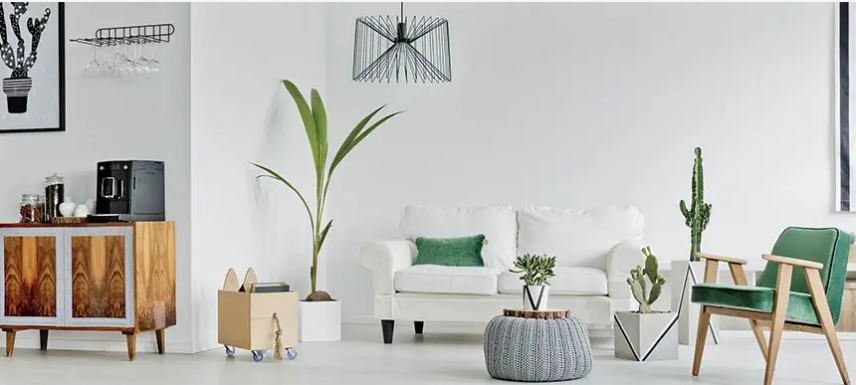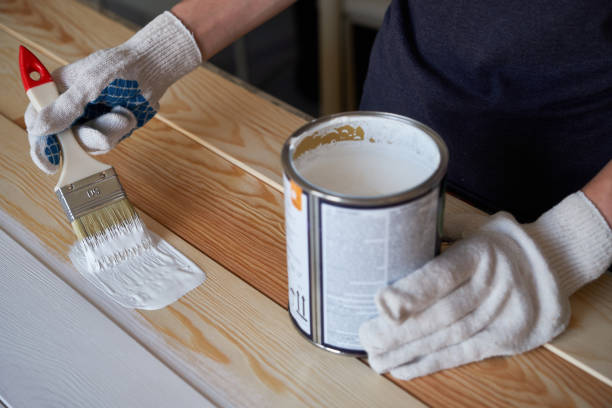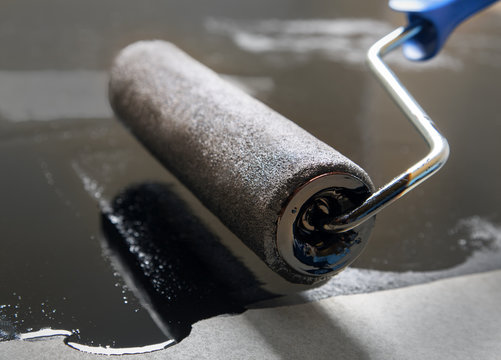- 7.30 AM - 9.30 PM
- (+91) 9827068457
PAINTS
Types of commercial painting paints that are used
Paint has the potential to make a big impact on your workplace. You can add a
fresh coat or switch up the color outside for an exterior refresh. You can
also use paint to create an interior that’s as unique as your company
itself.
No matter the project, there is likely a suitable paint option out there.
Different paints adhere to different materials differently so choosing the
best one will give you long term durability. You can even look at options
that protect your surfaces and provide added benefits. When it comes to
painting commercial businesses, these are the types of paints that we use..
Painting for Machinery
Machinery often comes in standard black or grey hues. Changing up the
color allows you to make it both visually appealing and functional. It’s
important that machinery is painted properly so that the finish is both
long-lasting and doesn’t impact the machine.
A high-quality urethane is usually the best option for painting
machinery. It adheres well and cures to a hardened coating that is
extremely durable. Epoxy can also be used depending on the sheen that is
desired. Either way, the finish will last longer on these high-touch
surfaces than with that of just normal paint.
These systems allow for customizing the coating to your unique needs and
to the type of machinery. Additives can be used to make the coating more
resistant to extreme temperatures, even open flames. Moisture resistant
additives can be helpful in reducing mold and mildew for machinery in
humid or wet environments. The coating can even be adjusted to withstand
exposure to harsh chemicals.
Prep is essential to making sure the coating adheres properly. Machinery
will be meticulously cleaned prior to painting. Machine parts that
should be avoided will be carefully covered to ensure they are
protected. The area around your machinery will also be covered to avoid
any spills and splatters. Then, your machinery will be expertly painted,
resulting in an impressive update to your workplace.
Painting Ceilings and Pipes
Drywall ceilings just don’t make sense in many spaces. However, open
ceilings with pipes and wiring can be unsightly. Often, painting an open
ceiling is the best option to make it look more presentable.
Freshening up a dark, dreary ceiling can make a big impact on your
space. Plus, it will make it brighter and easier to illuminate properly.
You may even save on lighting costs.
A paint that is designed to dry fall is usually the best option for
ceiling applications. It helps avoid any paint that doesn’t stick to the
ceiling from adhering to other surfaces. This allows the paint to be
sprayed upward, creating a more uniform application and coating any
wires and pipes.
A high-quality dry fall acrylic paint can be a good choice for ceilings.
With options for mildew resistance, it’s ideal for a wide range of
surfaces like metal, PVC, and wood. This makes it ideal for ceilings
with a wide range of materials present. A high-hiding formula ensures
that you receive a uniform finish, despite the varying colors of ceiling
components like wiring and ventilation.
Paints for Metal Applications
Metal can be a very tricky surface to paint properly. The surface preparation is extremely important. Choosing the correct paint is also vital to the outcome and long-lasting durability.
Stucco and Brick
Stucco and brick exteriors can suffer from staining over
time. They can also fade and look worn and old. A good paint
job can bring new life to these surfaces.
However, stucco and brick are a little more complicated to
paint than smooth surfaces. They require both special prep
and specifically formulated paint. Spray application or
using specially designed rollers ensures a smooth, even
coating.
Exterior paint that’s designed for use on brick and stucco
will provide the most coverage and long-lasting finish.
Elastomeric, acrylic, and latex can all be suitable for
applications. Either way, a flat sheen usually looks best
and the most natural. Paints that are mildew resistant are
helpful in keeping the exterior of your building looking
fresh and clean.
Siding
Are you wanting to change up the color of your vinyl siding?
Fortunately, with special techniques, it can be painted and
updated. The results can be a cost-effective alternative to
replacing your siding.
Paints that are specially formulated for vinyl siding are
ideal. Lighter colors are best as they don’t absorb as much
damaging heat. Acrylic and urethane resins provide the best
adhesion and long-lasting coverage on vinyl. They are
designed to expand with the vinyl as it reacts to the heat..

Protective Paints
Investing in a quality paint job can help preserve and protect your surfaces. Specially formulated paints can aid in the prevention of damage caused by things like rusting. They can also add an extra layer of protection against the wear and tear many surfaces suffer from.
Paints to Prevent Rusting
Rustproof paints are a great way to protect your metal equipment from suffering damage and erosion. These paints block the pores in metal where moisture settles, leading to rust. Both latex and oil-based versions can be used for great coverage. A rustproof primer can add an extra layer of protection.
Paints to Protect Surfaces
Enamels formulated to cure to a hard layer can protect surfaces. This can make them more resistant to damage, especially in high-traffic areas. This extra barrier from the elements can help prevent everything from mold and mildew to scratches and dents.
Internal Paint for Businesses
The inside of your business is just as important as the outside. Your employees will have a sense of pride when they arrive at work and your decor can positively affect workplace morale. A well-designed interior is impressive and welcoming to customers as well.
Type Of Paints
1. OIL PAINT
Paints are divided into two categories - oil-based paints and water-based paints.
Oil paints are usually applied as a primer, undercoat and a finish coat. In the past oil paints were heavily relied on because of its durability and longevity on surfaces, however water-based paints are now at par. Known for their gloss and durability, oil paints stand for a rich finish, water-resistant properties and long-lasting abilities.
Applications, benefits and tips to consider when choosing oil paint:
1.Use on metals, walls, doors, windows and stained surfaces for durability
2.Highly recommended for trim work
3.Use in non-humid areas since drying time takes longer than 24 hours
4.Easy to clean and easy to apply
Expert Tip: Oil paints are best suited for wooden and metallic surfaces for home projects due to their durability and strong adhesion.

2. Emulsion Paint
Unlike traditional oil paints, majority of emulsions are water-based paints with fast-drying characteristics. It’s the popular choice for paint contractors since it’s alkali resistant, rich in texture and has stronger colour retention abilities, making it a long-lasting paint choice. As a homeowner, your biggest advantage with water-based emulsions is that it does not leave an odor and dries quickly. Acrylic emulsions offer your beautiful home resistance to cracking with its versatile and flexible finish through the years.
Did you know that sunlight can lead to the fading of your wall paints? But fret not, acrylic emulsions are resistant to this too.
Applications, benefits and tips to consider when choosing emulsion paint:
1.Mould and mildew resistance.
2.Low on VOCs (Volatile Organic Compounds), making it a good non-toxic choice
3.Easy to apply on exterior walls and interior walls too
4.Offers a range of wall finishes like satin, egg shell, glossy, matt etc.
5.Emulsion-painted walls are easy to clean, so let your kids loose!
6.Emulsions vary from weather-protectants to luxury, ultra HD interior finishes (have your pick!)
Expert tip: Water-based, acrylic emulsions are low on VOC, do not emit fumes and are good for the environment in comparison to oil paints.

3. Enamel Paint
As an oil-based solvent, enamel paints are characterized by key qualities of oil paints like slow-drying abilities and hardness.
It is an expensive choice for a homeowner, but enamel paints also render high durability, strong adhesion, provide glossy finish and are water and stain resistant.
Applications, benefits and tips to consider when choosing enamel paint:
1.Perfect for humid and wet spaces like bathrooms and kitchen metals
2.Best for walls that need protection
3.Highly popularized for woodwork, metal work and window work
4.Offers good coverage, hardness and colour retention
5.Long-lasting choice for certain wood surfaces and metal
Expert tip: If you prefer water-based paints, there are water-based enamel paints meant for metal painting and interior sheens to meet your criteria too.

4. Bituminous Paint
Along with common paints, there are many types of industrial paints used to coat pipes, irons, woods and external work. Characterized by a black, tar-like appearance and good alkali-resistant properties, bituminous paint is formulated using dissolved asphalt and/or tar.
Although this type of paint is water-proof, it is generally not suited for areas exposed to the sun, since it deteriorates in sunlight. To achieve a certain colour, pigment can always be added to this type of paint.
Applications, benefits and tips to consider when choosing bituminous paint:
1.Provides a protective, water-proof, weather proof, chemical and corrosion-resistant layer
2.Ideal for metal work, pipe work, wood work, underwater structures
3.Ideal for exteriors such as ladders, shafts, and other iron work
4.Helps in providing rust resistance for metal application

5. Aluminium Paint
Aluminium paint is a type of paint coating that is made by mixing aluminium particles or flakes with oil/spirit varnish. The type of varnish can be used as per the requirement since spirit varnish leads to a shorter drying period.
The benefits of using this type of paint is resistant to electricity, weather, corrosion and is waterproof. Aluminium paints give a silvery finish and are strong and durable paints due to the resin in it.
Applications, benefits and tips to consider when choosing aluminium paint:
1.Used for hot water tanks, hot pipes, masonry, oil storage tanks etc.
2.Used for metals and woods too
3.Popular for being electricity and corrosion-resistant
.png)
6. Anti-Corrosive Paint
Made from anti-corrosive elements like linseed oil, zinc chrome and fine sand, Anti-Corrosive Paints are ideal for metallic surfaces. As its name suggests, it helps prevent corrosion on various surfaces, mainly metallic in nature.
Applications, benefits and tips to consider when choosing anti-corrosive paints:
1.It is used for steel and iron work
2.Mainly used for pipes, external structures and metallic work
3.It is cost-effective, black in colour and a strong, long-lasting choice
7. Synthetic Rubber Paint
Synthetic Rubber Paints are formulated from dissolving synthetic resins and by adding suitable pigments and solvents to it. Due to pigments being added, any colour can be attained. You will find this paint on concrete surfaces, walls and floors since it's weather-resistant and has properties that make it alkali and acid resistant too.
Applications, benefits and tips to consider when choosing synthetic rubber paint:
1.It dries very quickly and maintains consistency and uniformity on large expanses
2.It is cost-effective, chemical-resistant and weather-resistant
3.Widely used on concrete walls, large surfaces, floors, grounds etc.
4.It will be long-lasting despite weather and wear and tear of surfaces
8. Cement Paint
Traditionally known as whitewash or cement paint, distemper paint is a paint variant that comprises of lime, chalk, pigment, water and glue. It happens to be one of the oldest types of paint. Contemporary versions of it are in paint form, or else traditional distempers are available in powder form and need to be mixed for application on walls.
Applications, benefits and tips to consider when choosing cement paint:
1.No cracking due to sunlight
2.Can be applied on cement and rough interiors/exteriors without primers
3.A cheaper medium of paint and application
Expert tip: Head for a water-based distemper paint that gives you an excellent finish, durability
9. Speciality home paints: Lasts long, protects longer
You may have heard about antifungal, waterproofing and crack-bridging paints. There are specific types of home paints for exterior and interior walls that focus on protecting walls from climatic conditions, domestic situations and wear and tear.
From UV resistant, water-based exteriors to holistic weather protectants, speciality home paints target wall and climate concerns with aesthetic value as brownie points. Here’s a special mention to eco-friendly, healthy home paints for interiors too, that are specially designed for a safer environment without the presence of harmful chemicals and vapours.
Applications, benefits and tips to consider when choosing a speciality home paint:
1.Perfect for exteriors, buildings and weather-prone areas
2.Easy to apply and high coverage material
3.Targets specific concerns like algal issues, dust, longevity, climate etc.
4.Functional yet aesthetically pleasing
Expert tip: Here’s a range for humid and monsoon-prone areas in India that need exterior painting.
Conclusion: What are the different types of paint?
Each paint has its unique set of uses or applications. Here is a quick summary of the different types of paint and their different purposes & applications:
1.Oil paints: A resilient choice
2.Emulsions: A long-lasting beauty
3.Enamel paint: A Selective choice
4.Bituminous Paint: Water-proof choice
5.Aluminium Paint: Recommended for industrial uses
6.Cement paint: The chosen whitewash
7.Speciality paint: Lasts long, protects longer
3.Here are a few more handy tips to help you move a few steps further in your home improvement journey:
1.Understand the different types of wall paint & finishes for your walls
2.Tips to choose the best interior paints for your walls at home
3.Find the best exterior paints for your home
Address: House No -03, Duplex Fortune , Soumya Heritage ,
Near IPS School,
Hosangabad Road , Bhopal ( Mp)

